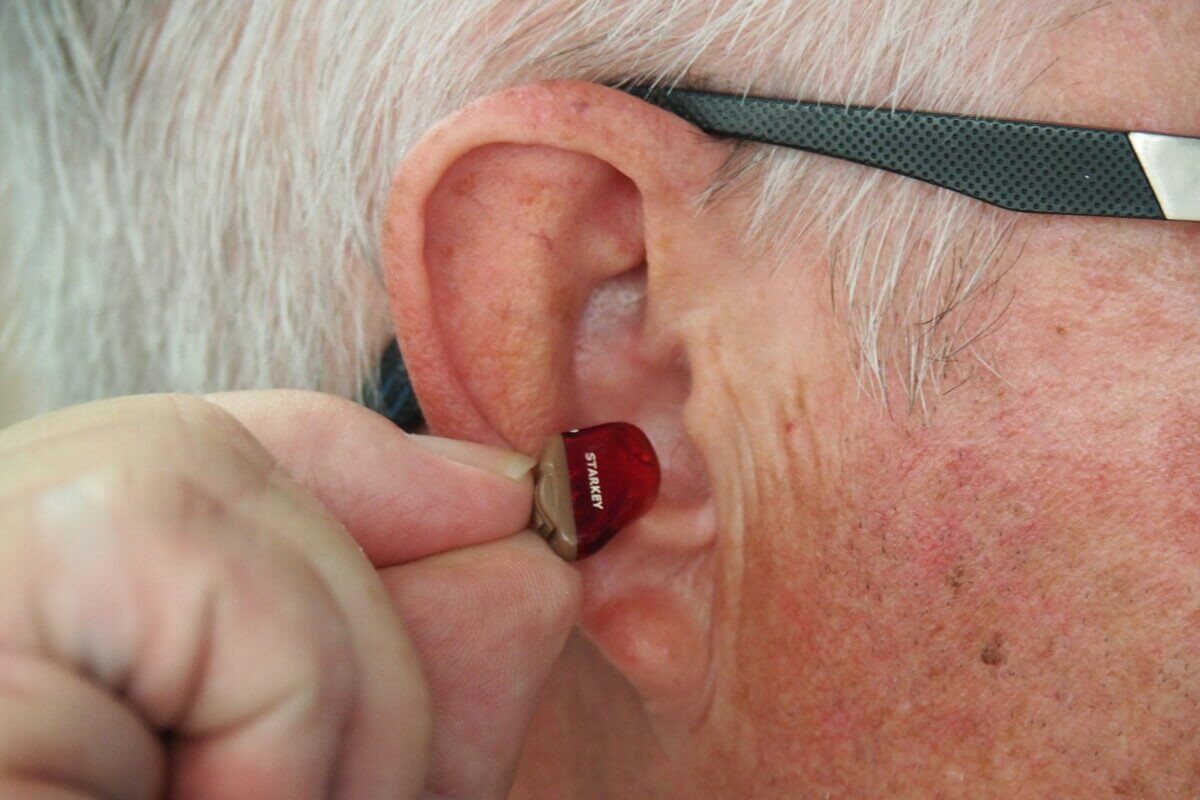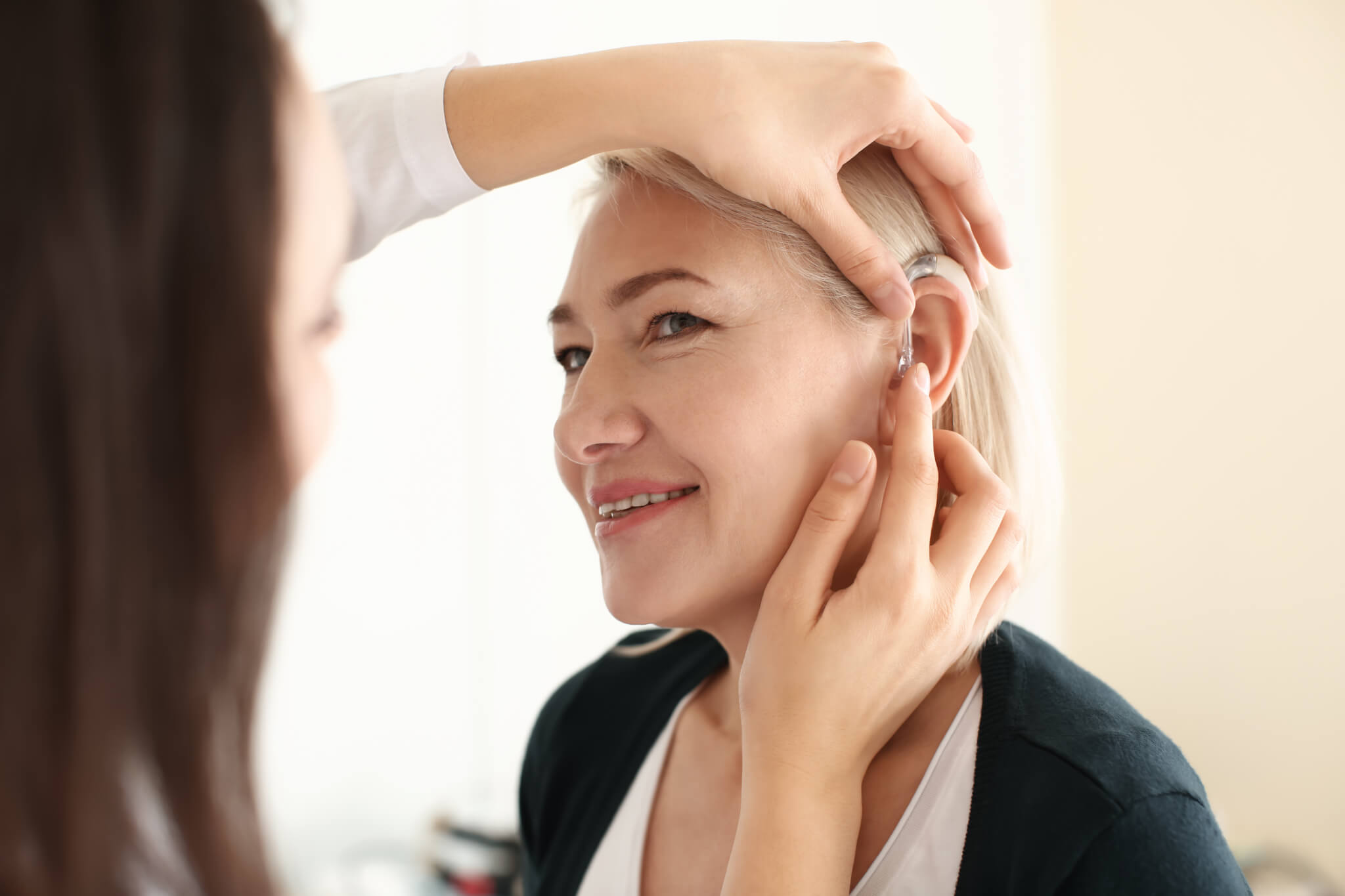
Photo by Mark Paton from Unsplash
GOTHENBURG, Sweden — In the 1800s, it was a miracle to live past 40. Nowadays, more people are actually making it to 90 and beyond. While the human lifespan has extended, it has also introduced a new set of health problems — namely, hearing loss. A new study reveals that eight in 10 people need hearing aids when they reach the age of 90.
Specifically, the team from the University of Gothenburg found all people over 90 in the study had some degree of hearing loss. Three in 10 had issues with occluding ear wax.
“In the 90+ age group, hearing health is extremely important for both physical and mental health. Hearing loss can lead to increased isolation, depression, dementia and increased risk of falls. At the same time, this group is basically unexplored in terms of hearing ability where standardized tests are used,” says Åsa Winzell Juhlin, a PhD student at Sahlgrenska Academy at the University of Gothenburg and an Audiologist at the Hearing Care Center in Gothenburg, Sweden, in a media release.
Most studies on older adults have focused on people between 65 and 79 year-old, with some examining people in their 80s. Though the average American lifespan is 77.5 years, the number of nonagenarians (people between 90 and 99) is expected to grow in the future.

The new study published in the International Journal of Audiology examined the ear health of people between 90 and 95, finding severe hearing problems in this age group. They used standardized hearing tests, which are scarcely used on people over 90. The study only tested 91 people, a small sample size due to the study taking place during the COVID-19 pandemic. However, the authors note there was diverse representation among the participants, including those considered severely ill and in residential care.
None of the adults had normal hearing and 80% had hearing loss so severe they relied on hearing aids. Thirty percent showed evidence of ear wax blocking their hearing in one or both ears. An accumulation of ear wax blocking the ear canal not only makes it harder to hear, it creates issues fitting hearing aids.
“Those aged 80 and over often have a completely different cognitive function and less co-morbidity. Those over 90, on the other hand, are often in residential care, are not always tested or diagnosed for hearing loss, often have difficulty handling hearing aids and do not get much support,” explains Åsa Winzell Juhlin.
One interesting observation was hearing impairment in older men compared to women. Elderly men had more trouble hearing than women.
“We need to have a better focus on hearing for the very elderly, use hearing aids where possible, but also work more with the acoustic environment,” adds Åsa Winzell Juhlin.
Paper Summary
Methodology
The researchers looked at hearing loss in two groups of very elderly people - 42 individuals around age 90 and 49 individuals around age 95. They visited the participants in their homes to conduct hearing tests, including people living in nursing homes. This was done to make it easier for more people to participate.
Results
Almost everyone tested (98%) had some degree of hearing loss. About 8 out of 10 participants had hearing loss severe enough that it would likely impact their daily lives and ability to communicate. The 95-year-olds tended to have worse hearing than the 90-year-olds, especially for lower-pitched sounds. There were some small differences between men and women, but these differences weren't as pronounced as in younger age groups.
Limitations
The COVID-19 pandemic forced them to stop testing earlier than planned for the 90-year-old group. The study was also done in Sweden, so the results may not apply everywhere.
Conclusion
Hearing loss is extremely common in people over 90 and tends to get worse with age, even into the 90s. The researchers suggest that healthcare workers should regularly check older adults' hearing and look for ear wax buildup. They also note that it's possible to do proper hearing tests in people's homes, which could help more elderly people get their hearing checked.
The study highlights how widespread hearing problems are among the very old and emphasizes the need for better awareness and care for hearing health in this age group.










